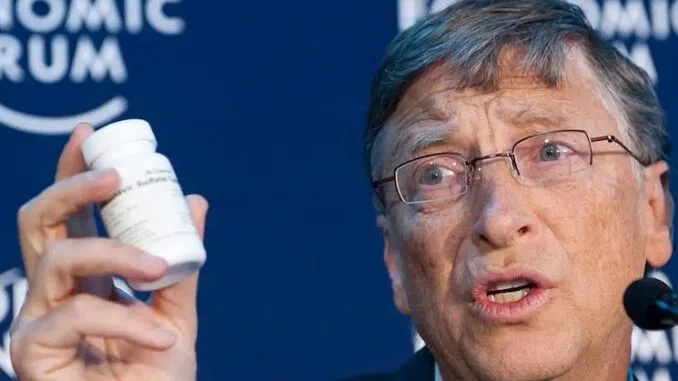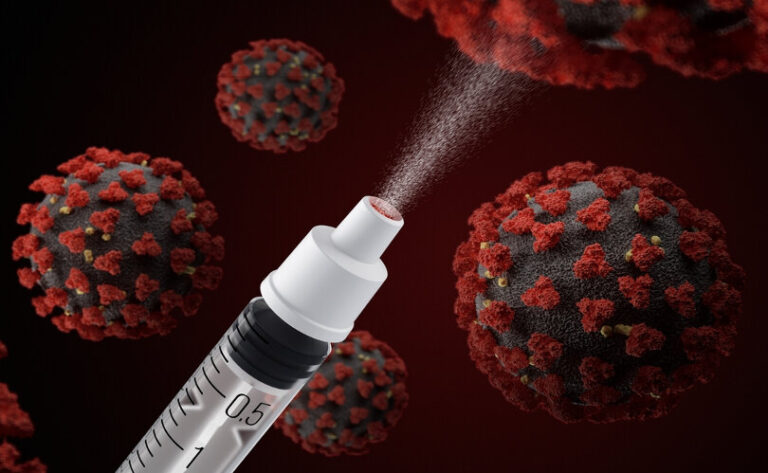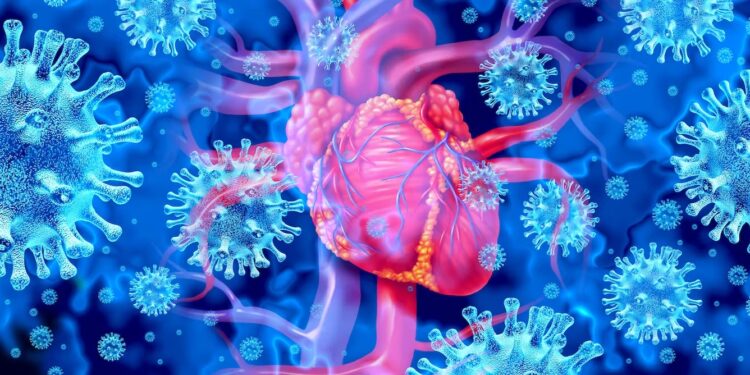Leading Cause of Immune Dysregulation, Like Autism, Is ‘Hypervaccination’: Dr. Peter McCullough
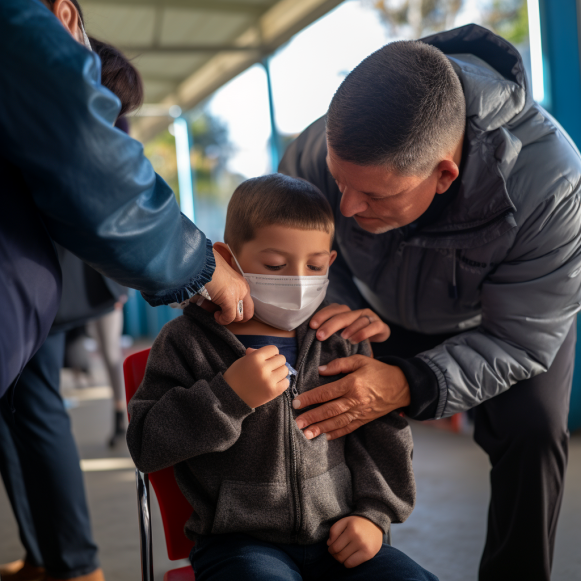
Children who do not take any vaccines have ‘healthier outcomes’ in current conditions, claimed the doctor.
According to cardiologist Dr. Peter McCullough, increased vaccination intensity in children can disrupt their immune systems and potentially lead to neuropsychiatric illnesses like autism.
“There has been an incredible acceleration and intensification of vaccines given to children,” Dr. McCullough said in an interview with Del Bigtree for The Highwire on October 19. “Over 200 peer-reviewed papers have now been published suggesting that immune system dysregulation is linked to neuropsychiatric diseases such as attention deficit disorder, Asperger’s syndrome, and autism spectrum disorder.” Hypervaccination is currently the leading cause of immune system dysregulation.”
Hypervaccination is the repeated immunization of a previously immunized person.
The body becomes incapable of controlling or restraining an immune response in people with immune system dysregulation. According to UPMC Children’s Hospital of Pittsburgh, as a result, the immune system either underreacts to foreign invaders, causing infections to spread quickly, or overreacts, causing immune cells to attack healthy organs, tissues, and cells.
According to the doctor, some diseases are no longer relevant enough to be vaccinated against, while other infections continue to affect the vaccinated.
All vaccines on the childhood immunization schedule “appear to be fallible,” according to Dr. McCullough. “For example, measles outbreaks have occurred among fully vaccinated individuals.” The same is true for pertussis and the mumps.”
Society is not currently facing compelling infectious disease threats such as pertussis, diphtheria, polio, or haemophilus influenzae B (HIB), he said, adding that a recent CDC publication reported 77 cases of HIB, with more than half of those having received the HIB vaccine.
“The point is, we now have multiple papers … and all those studies suggest in today’s environment, with today’s living conditions and current context, that going natural—that is, taking no vaccines—the children have healthier outcomes.”
According to him, such unvaccinated children have lower rates of asthma and neuropsychiatric disorders.
Studies in Support
Several studies on the health outcomes of vaccinated children were mentioned by Dr. McCullough.
In a 2017 study led by Anthony R. Mawson, a professor in the department of epidemiology and biostatistics at Jackson State University’s School of Public Health in Mississippi, researchers examined the outcomes of vaccination in 666 children aged 6 to 12 years.
261 of the 666 people were unvaccinated. According to the study, vaccinated children had a higher rate of allergies and neurodevelopmental disorders than unvaccinated children.
Dr. Paul Thomas, a pediatrician, studied the effects of vaccination on patients at his practice who had received one to 40 vaccines in a 2020 study. While 0.063 percent of vaccinated participants had attention deficit hyperactivity disorder (ADHD), none of the unvaccinated participants did. The study was later withdrawn from the journal.
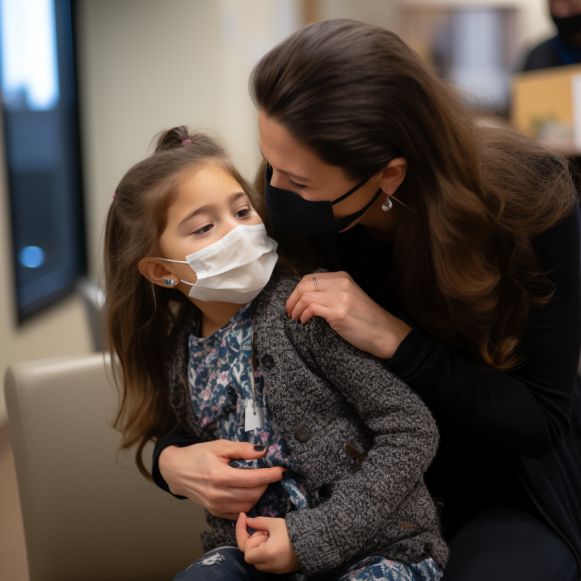
Neil Miller and Brian Hooker conducted a 2020 study to better understand the health differences between vaccinated and unvaccinated children. They discovered that getting vaccinated before the age of one year was linked to “increased odds” of developmental delays, asthma, and ear infections.
Dr. McCullough expressed reservations about the Advisory Committee on Immunization Practices (ACIP) panel of the Centers for Disease Control and Prevention (CDC).
After the ACIP panel recommended mRNA COVID-19 vaccines from Pfizer and Moderna for infants as young as 6 months, “the question I asked now is if this group recommends that vaccine in the schedule, what else have they overlooked in terms of safety or lack of a clinical rationale?”
“Right now, I’m in line with the World Council for Health, which in September of 2023 came out with a recommendation to actually pause on the childhood vaccine schedule,” Dr. McCullough told CNN.
Inspiring Parents to Wait
In a press release issued on September 5, the nonprofit World Council for Health urged parents to consider childhood vaccination “very carefully” and to take the “Safer to Wait” approach.
Several research studies have shown that vaccinated children have “far worse health outcomes” than unvaccinated children, including higher rates of many chronic diseases.
Dr. McCullough stated in an interview, “I couldn’t, in good conscience, tell a parent to go ahead and follow the schedule now, particularly with the COVID-19 vaccines on the schedule.”
Dr. McCullough stated that he was not opposed to vaccination. “I’ve had 69 vaccine shots in my life, including 40 flu shots required for medical staff.” So, let me state unequivocally that I am not an anti-vaxxer. But I am aware of the vaccine risk.”
Furthermore, the doctor demanded a “corruption sweep” of federal agencies and educational institutions to determine who “took money to push COVID-19 vaccines.”
“When I review COVID-19 vaccine manuscripts, the first question I ask as a reviewer is, did the institution push or mandate vaccines, and did the authors push, mandate, or personally take the vaccines?” “Once someone has taken a vaccine, they develop a bias, and it’s very difficult for people to admit they’re wrong, especially in this day and age,” he said.
Smallpox and Polio
During the interview, Dr. McCullough was asked about persistent claims that pausing childhood vaccines would result in a resurgence of polio and smallpox outbreaks.
“What do you say about the danger of smallpox and polio if people stop vaccinating?” Mr. Bigtree inquired.
According to the cardiologist, we now have medications to deal with such situations, so there is no need to inject children with vaccines against these diseases.
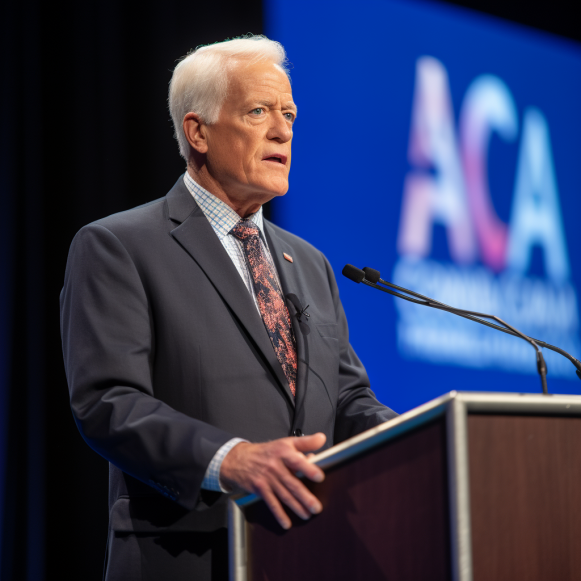
“Let’s start with smallpox. That should respond well to tecovirimat, an oral and IV drug that is highly effective against monkeypox. We discovered this during the pandemic. So, if there was a sporadic case of smallpox, the availability of tecovirimat would be ideal. So I wouldn’t be concerned there.”
“I believe polio is a separate issue.” And, fortunately, we have very good water supply testing for polio, so we can determine whether the three neurotrophic strains of polio are even present in the water supply,” he said.
“We have monitoring. “We have treatment,” he explained. “None of these vaccines are sufficiently compelling right now.”
Dr. McCullough also advocated for a re-evaluation of all vaccines currently used in the childhood immunization program.
“I think what we’ll end up with is probably risk stratification—that is, there may be some regions of the world where there’s risk, there may be particular patients who just couldn’t tolerate even the slightest risk of one of these infections,” he went on to say.
In such areas and populations, he believes that vaccination is more appropriate.
“However, I believe that the days of each child receiving well over 100 injections from birth to age 18 are over.” Recent studies and sentiment surveys, such as those conducted by the Kaiser Family Foundation, indicate that roughly one-third of parents are now seriously reconsidering this intensive vaccine schedule.”
The KFF Vaccine Monitor reported in December 2022 that 28 percent of adults, or nearly one-third, believed parents should have the right to choose whether to vaccinate their school-age children, even if such decisions put other people’s health at risk. This was an increase from 16% in 2019.
Vaccination Against COVID-19 in Children
Giving COVID-19 vaccines to children is a contentious issue. While some studies back it up, others warn against such injections.
The New England Journal of Medicine published a study in February 2023 that concluded that three doses of Pfizer’s mRNA vaccine were “safe, immunogenic, and efficacious in children 6 months to 4 years of age.” Pfizer funded the research.
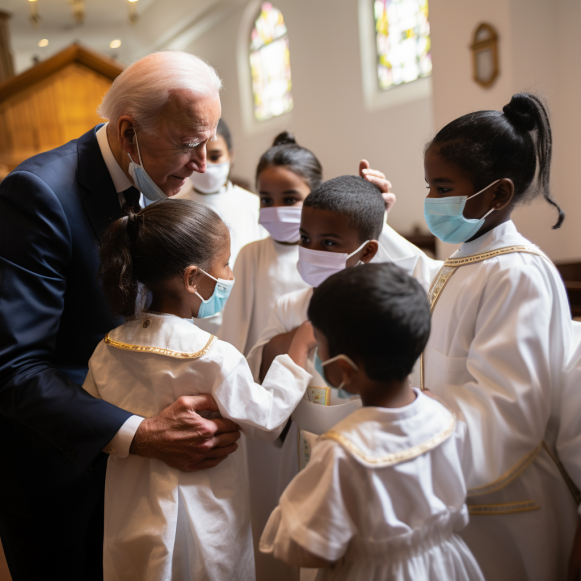
One study discovered that some children who experienced heart inflammation after receiving mRNA vaccines from Pfizer or Moderna had scarring on their hearts months later. Another study discovered that over 100 children had seizures after receiving COVID-19 shots.
Because children’s bodies and brains are smaller than adults’, they are more vulnerable to environmental toxins. As a result, the safety threshold for suggesting medical intervention for children should ideally be higher than the safety threshold for adults.
Dr. Reni Moon, a pediatrician, told The Epoch Times last year that injecting COVID-19 vaccines into children is “the most appalling thing I’ve heard in medicine.”
“It is highly unethical to disregard safety.” “I personally classify it as a crime against humanity.”


